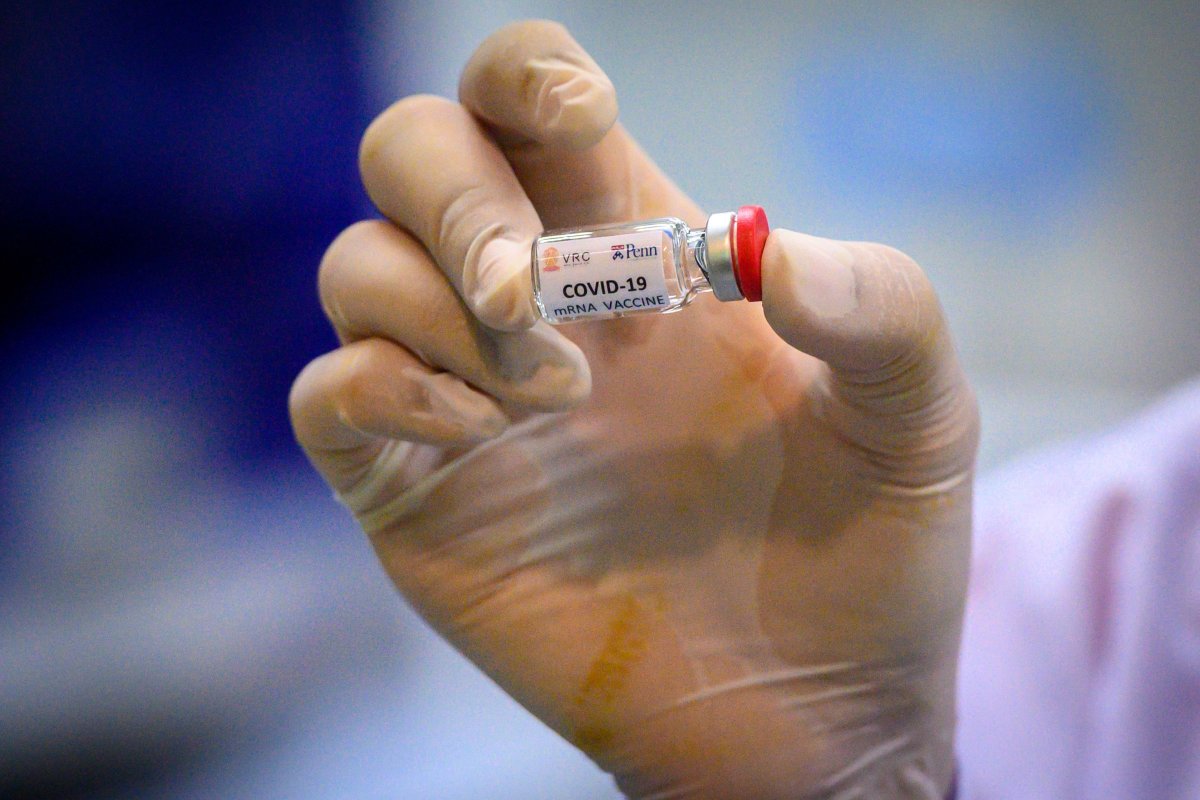A study tracking any effect a COVID vaccination may have on women's periods was published Wednesday, with results the doctor who led the research called "incredibly reassuring," as the average participant showed a small, temporary change.
The research tracked about 4,000 women in the U.S. with "the most normal of normal" cycles, according to Dr. Alison Edelman of Oregon Health & Science University, who led the research.
It tracked vaccinated and unvaccinated women for six menstrual cycles in total, which is measured from the first day of one period to the first day of the next. The tracking of vaccinated women's samples included the month in which they got the shot in the center of their sample, tracking three cycles before and after.
In the sample of vaccinated women, the average period following the vaccination started one or two days later than the woman's usual, with no change found in the number of days on which the women experienced menstrual bleeding.
"This is incredibly reassuring," Edelman said, emphasizing that it's valuable information because it's important to tell women what to expect to happen to their bodies.
About 350 women who got both doses within the evaluated time experienced a slightly larger change to the length of their next cycle — about two days. About 10 percent of that subset experienced a change of at least eight days, but their cycles largely returned to normal for the following months.

Some women have reported irregular periods or other menstrual changes after their shots. The National Institutes of Health is funding studies to examine if there's any link.
Edelman's team analyzed data from a birth control app called Natural Cycles, cleared by the Food and Drug Administration for women to track their menstrual cycles and tell when they're most likely to become pregnant.
Slight variations from month to month are normal, and stress, diet, even exercise can spur temporary changes.
Edelman said one theory is that when the immune system revs up at certain times in the cycle, "our body clock or what controls the menstrual cycle can have a hiccup."
She plans additional study to tell if there are changes in the heaviness of menstrual bleeding or if women who have irregular periods react differently.
The findings provide "important new evidence underscoring that any impact of the COVID vaccines on menstruation is both minimal and temporary," Dr. Christopher Zahn of the American College of Obstetricians and Gynecologists said in a statement.
The Associated Press contributed to this report.
Uncommon Knowledge
Newsweek is committed to challenging conventional wisdom and finding connections in the search for common ground.
Newsweek is committed to challenging conventional wisdom and finding connections in the search for common ground.
About the writer
A 2020 graduate of Kent State University with a Bachelor's degree in Journalism, Aaron has worked as an assigning editor ... Read more
To read how Newsweek uses AI as a newsroom tool, Click here.








